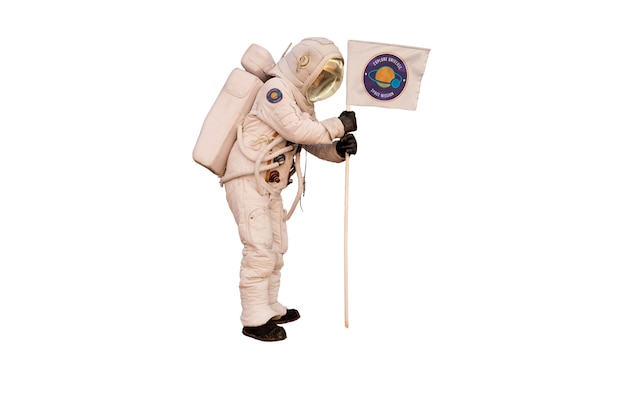

Astronauts undergo extensive training to prepare for their missions.
The first person to walk on the moon was Neil Armstrong, an astronaut from the United States.
Astronauts float in space due to the absence of gravity.
Astronauts experience extreme temperatures in space, ranging from scorching heat to freezing cold.
Astronauts wear spacesuits to protect themselves in the harsh environment of space.
The International Space Station (ISS) is a home in space for astronauts from different countries.
Astronauts communicate with mission control on Earth using advanced technology.
Astronauts conduct various scientific experiments during their missions.
Astronauts require a special diet in space to ensure their nutrition needs are met.
Astronauts rely on teamwork and collaboration to accomplish their missions.
Astronauts experience a unique perspective of Earth from space, seeing its beauty and fragility.
Astronauts need to exercise regularly to prevent muscle and bone loss in microgravity.
Astronauts risk their lives to explore the unknown and expand human knowledge.
Astronauts experience a phenomenon called the overview effect where they gain a new perspective on humanity and the planet.
Astronauts face challenges such as isolation and homesickness during long-duration missions.
Astronauts experience time dilation due to the effects of relativity in space.
Astronauts undergo rigorous medical examinations before and after space missions.
Astronauts need to be mentally and physically fit to perform their duties in space.
Astronauts use specialized equipment to stay safe during spacewalks.
Astronauts conduct experiments on their own bodies to study the effects of space travel on human health.
Astronauts experience the sunrise and sunset every 90 minutes due to the orbit of the spacecraft.
Astronauts use specialized cameras to capture stunning photographs of Earth from space.
Astronauts train for emergency scenarios to ensure their safety during space missions.
Astronauts experience a phenomenon called space adaptation syndrome that causes nausea and dizziness.
Astronauts contribute to the development of new technologies that benefit life on Earth as well.
Astronauts experience a loss of taste sensation in space due to the changes in their bodily fluids.
Astronauts often have to repair and maintain equipment on the spacecraft to ensure its proper functioning.
Astronauts experience a feeling of weightlessness, which can be both exhilarating and disorienting.
Astronauts often experience changes in their vision due to the effects of microgravity.
Astronauts face the risk of radiation exposure during their missions.
Astronauts require proper sleep schedules to maintain their health and performance in space.
Astronauts live in a confined environment with limited resources during their missions.
Astronauts wear diapers during spacewalks as bathroom facilities are not available.
Astronauts experience a delay in communication with Earth due to the distance between the planet and the spacecraft.
Astronauts have to deal with the challenges of recycling and managing waste in space.
Astronauts have to adjust their sleep patterns to the 24-hour day on the International Space Station.
Astronauts often experience a sense of awe and wonder when looking at the vastness of the universe from space.
Astronauts experience changes in their blood flow and cardiovascular system in microgravity.
Astronauts have to train for emergency landings and escape scenarios in case of spacecraft failure.
Astronauts contribute to the advancement of space exploration by conducting research and experiments in space.
Astronauts undergo psychological evaluations to ensure they can cope with the mental challenges of space travel.
Astronauts often experience a sense of camaraderie and friendship with their fellow crew members.
Astronauts experience changes in their sense of taste and smell in space.
Astronauts face the risk of debris collisions with their spacecraft while in orbit.
Astronauts inspire future generations to pursue careers in science, technology, engineering, and mathematics (STEM).
Around the world, coffee enthusiasts enjoy Monin coffee concentrate since it is a multipurpose product. Conveniently combining…
The Importance of Choosing the Right Shower for Your Bathroom Renovating your bathroom can be…
Usain Bolt holds the record for the fastest 100-meter sprint in history.Bolt was named Sportsman…
Love is in the air... and it smells suspiciously like chocolate!Roses are red, violets are…
Life's a beach, take a picture and relax.Sun, sand, and salty kisses. That's what beach…
Hungary is home to the largest thermal water cave system in the world.The Rubik's Cube…